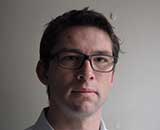 “You saved my life, doctor. I can’t thank you enough.” Letter from Tom 2011
“You saved my life, doctor. I can’t thank you enough.” Letter from Tom 2011
“Our mother is dead … because of you.” Bereaved daughter. Poplar coroner’s court 2010
“What is the drug you use with patients all the time?” “The doctor is the drug.” M Balint 1952 [1]
Professional identity is particularly strong in doctors and medical students, and perhaps more than our non-medical peers we assimilate this into our personal identity. [2,3] With this, comes a sense of moral responsibility; we cannot avoid thinking that what happens to our patients is not just down to what we do, but the kind of people we are. How much we internalise our identity and feel morally responsible varies considerably, at one, perhaps narcissistic, extreme it’s all about us and at another, perhaps psychopathic, extreme, it’s anyone or anything other than us.
What is clear is that this spectrum of moral responsibility is not clearly divided, despite the best efforts of lawyers, ethicists, and moral philosphers, the problem looks set to remain for as long as humans care for one another. [4]
Some examples:
We might judge a doctor who fails to ask a patient about allergies before administering penicillin more harshly if the patient is allergic and suffers a fatal anaphylactic reaction than if the patient is not allergic and not only suffers no harm, but also recovers from their infection. Our judgment of a doctor whose patient suffers an irritating, but non-fatal allergic reaction might fall somewhere in between. In none of the cases did the doctor ask about allergies, so the only significant difference is in how the patients responded to the drugs. This is an example of moral luck.
Intuitively there is something worrying about the idea that moral judgment or moral standing depend on factors outside someone’s control. One immediately obvious problem is that the degrees to which factors are within someone’s control are easily contested. If we take any case of a patient who died while receiving active medical treatment, then the multiple decisions that led to the interventions before their death, described by way of example here by Phillip Berry, could always have been different. [5] To different degrees, depending on a multitude of factors, including the doctor’s psychology, moral luck and “agent regret” will come into play. Agent regret or self-blame exists because we can never be sure we did everything possible, no matter what our friends or lawyers tell us. “Regret” is perhaps too light a word to capture the remorse, shame, and failure we feel when someone we are responsible for, dies.
For Nagel there are four types of moral luck, [4]
1. Resultant luck: “luck in the way one’s actions and projects turn out.”
2. Circumstantial luck: the luck involved in “the kind of problems and situations one faces.”
3. Causal luck: “luck in how one is determined by antecedent circumstances.”
4. Constitutive luck: the luck involved in one’s having the “inclinations, capacities, and temperament” that one does. (Nagel, 1993, 60)
Healthcare professionals are involved in the kind of problems and situations that quite often turn out in life or death, or to a lesser degree, in the relief or cause of patients’ suffering or disability. The tools of our trade are particularly powerful. As we have seen, between narcissism and psychopathy or perhaps more likely between those with high levels of emotional empathy who bond emotionally with their patients, and those who do not, our inclinations, capacities, and temperament lie on a spectrum. Moral luck it seems is an important feature in our profession.
It is revealing that psychiatrists and GPs, those who are most involved with their patients’ emotional lives, present to organisations like the Practitioner Health Programme most often, needing help with their own mental health problems. The demands for more compassionate, patient-centred, empathetic care in the aftermath of well publicised cases where this was lacking, like Mid Staffordshire Hospital, pay little or no regard [6,7] to just how much moral responsibility healthcare workers feel, why it might be lacking, and what can be done about it.
If we are to become more empathetic and take greater moral responsibility for our patients, something few people would disagree with, then how it affects us and our patients will depend to a significant and underappreciated degree, on luck.
Further reading
1) Edlund M. The Doctor is a Drug. Psychology Today. http://www.psychologytoday.com/blog/the-power-rest/201103/the-doctor-is-drug (accessed 26th March 2014)
2) Sinclair S. Making Doctors. An institutional apprenticeship. Berg Publishers. 1997
4) Moral Luck. Internet Encyclopaedia of Philosophy
5) Berry P. 5 days of escalation creep. Illusions of Autonomy blog. http://illusionsofautonomy.wordpress.com/2013/07/04/5-days-a-tale-of-escalation-creep/ (accessed 26th March 2014)
6) Zulueta P. Compassion in Healthcare. Clinical Ethics December 2013 vol. 8 no.487-90
7) Campling P. The last thing the NHS needs is a compassion pill. BMJ Blogs
Competing interests: None declared.
Jonathon Tomlinson is a GP at the Lawson Practice in London and a NIHR In Practice research fellow, studying moral development in medical education at the Centre for Primary Care and Public Health, Blizard Institute, Barts and The London School of Medicine and Dentistry. He has been teaching medical students in clinical skills, medical ethics, and medicine in society since 2003 and writes a blog about the relationships between doctors, patients, and society at http://abetternhs.wordpress.com/
